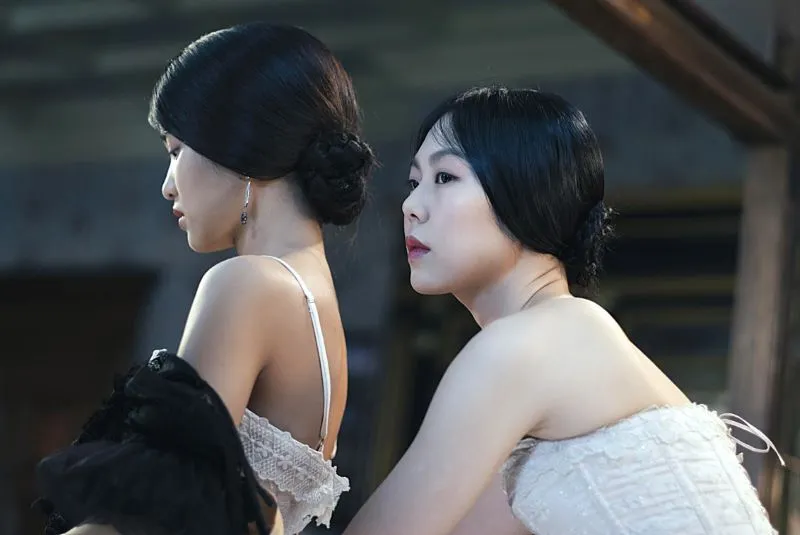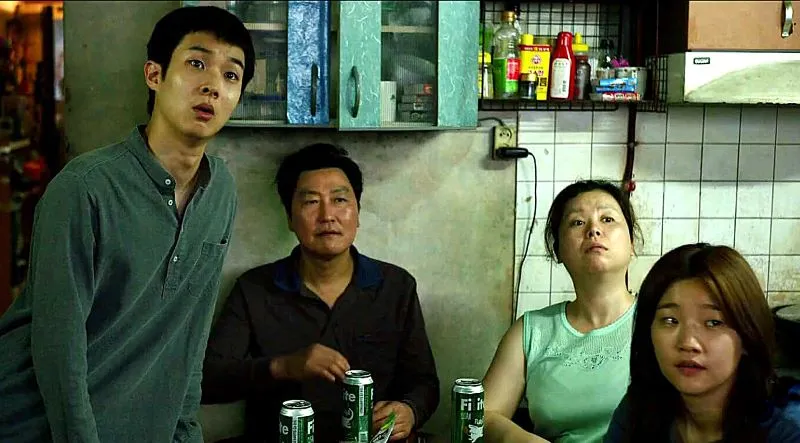Last updated on May 14th, 2025 at 10:55 pm
10 best Korean films of the past two decades showcase how Korean cinema has evolved from a regional powerhouse into a global phenomenon. Once limited to niche film festival circles, these top Korean movies are now winning major awards at Cannes, Venice, and even the Oscars.
Whether you’re a seasoned cinephile or a curious newcomer, exploring the 10 best Korean films is more than just a cinematic experience—it’s an insightful journey into Korea’s cultural and artistic depth.
From taut psychological thrillers to lyrical philosophical dramas, the best Korean films ever made reflect a perfect storm of storytelling prowess, technical excellence, and fearless creativity. What sets Korean filmmakers apart is their ability to fuse genres, tackle taboo topics, and innovate within narrative structure—creating movies that are as emotionally resonant as they are visually stunning.
This article ranks the top 10 Korean movies ever, not just by critical acclaim or box office earnings, but by their cultural impact, storytelling legacy, and ability to stand the test of time. Whether you’re into zombie blockbusters or meditative indie gems, this countdown offers a curated roadmap to the heart of Korean cinematic brilliance.
Background
Understanding the significance of the best Korean films of all time requires a quick look at the evolution of Korean cinema itself.
Korean cinema dates back to the early 20th century, but it wasn’t until the 1950s—following the end of Japanese colonial rule and the Korean War—that it started developing its own voice. Directors like Shin Sang-ok and Kim Ki-young were instrumental in laying the foundation for modern South Korean film.
The New Korean Cinema Movement (1997–2010)
The real turning point came during the late 1990s and early 2000s, when South Korea experienced a surge in creative freedom, economic recovery, and cultural investment. Known as the New Korean Cinema movement, this era saw directors like Park Chan-wook, Bong Joon-ho, and Kim Jee-woon emerge with bold, experimental films that pushed the boundaries of genre, violence, and morality. Government support for local films (via screen quotas and funding) helped cultivate a thriving domestic industry.
International Recognition
The global breakthrough came with Park Chan-wook’s Oldboy winning the Grand Prix at Cannes in 2004, followed by Bong Joon-ho’s The Host and Mother gaining traction abroad. But the real watershed moment was Parasite (2019), which not only won the Palme d’Or, but also made history as the first non-English language film to win Best Picture at the Academy Awards.
Today, Korean films are recognized not only for their artistic merit but also for their ability to tackle themes like class inequality, historical trauma, mental health, and social alienation with honesty and sophistication.
This curated list of the top 10 Korean films ever serves both as an essential starter guide and a deeper journey into Korean society, history, and artistry. Whether you’re exploring for education, inspiration, or pure enjoyment, these films embody why Korean cinema is among the best in the world.
10 Best Korean Films Ever
- Director: Kim Han-min
- Starring: Choi Min-sik, Ryu Seung-ryong, Cho Jin-woong
Synopsis: Set during the legendary Battle of Myeongnyang in 1597, The Admiral: Roaring Currents recounts the heroic stand of Admiral Yi Sun-sin, who commanded just 12 ships against a fleet of over 300 Japanese warships. Far from being a routine historical drama, this film is a visual and emotional tour de force. With meticulous set pieces and intense naval battles, the film showcases courage, strategy, and unyielding patriotism. Choi Min-sik (of Oldboy fame) delivers a powerful performance, anchoring the story with quiet intensity and steely resolve.
This blockbuster remains the highest-grossing Korean movie of all time, drawing over 17.6 million viewers domestically. It’s not only a stunning war epic but also a shining example of Korean cinema’s potential for large-scale storytelling. No list of the top Korean films would be complete without this entry.
- Director: Park Chan-wook
- Starring: Kim Min-hee, Kim Tae-ri, Ha Jung-woo, Cho Jin-woong
Synopsis: Inspired by Sarah Waters’ novel Fingersmith, Park Chan-wook’s The Handmaiden transposes Victorian England to 1930s Korea under Japanese colonial rule. It tells the story of a con woman hired as a maid to a wealthy heiress, with a sinister plot to rob her inheritance. But nothing is what it seems. With lush cinematography, sensual tension, and razor-sharp plotting, this erotic psychological thriller unfolds in layers—deception, love, betrayal, and empowerment.

The film was widely acclaimed for its storytelling and visual style, winning the BAFTA for Best Film Not in the English Language. Critics and fans alike consider it among the best Korean movies ever made, especially for fans of bold, twist-filled narratives. Park Chan-wook once again proves why he’s one of the master auteurs of Korean cinema.
- Director: Kim Ki-duk
- Starring: Oh Yeong-su, Kim Young-min, Seo Jae-kyung
Synopsis: A spiritual journey through life, Spring, Summer, Fall, Winter… and Spring is a poetic exploration of human nature, told through the life of a Buddhist monk living in a floating temple on a serene lake. Each chapter represents a different stage of life—innocence, temptation, sin, redemption, and peace. The minimalist setting, combined with stunning cinematography and profound silence, forces the viewer to meditate on the cycles of birth and rebirth.
Kim Ki-duk’s masterpiece doesn’t rely on heavy dialogue or dramatic tension. Instead, it speaks volumes through visuals and symbolism. As one of the most philosophical Korean films ever created, it’s a meditative reflection on karma, forgiveness, and the moral weight of our actions. A must-watch for those interested in contemplative Korean cinema classics.
- Director: Na Hong-jin
- Starring: Kwak Do-won, Hwang Jung-min, Chun Woo-hee
Synopsis: In a remote Korean village, a wave of gruesome murders and possessions begins after the arrival of a mysterious Japanese stranger. A bumbling police officer is thrown into an increasingly bizarre and terrifying investigation that merges elements of folk horror, shamanism, and exorcism. The Wailing is a slow-burn horror masterpiece that unsettles the viewer not with jump scares but with a deep sense of dread and ambiguity.
Na Hong-jin’s direction blurs the lines between good and evil, rational and supernatural. The film challenges viewers with its layered narrative and ambiguous ending, sparking endless online theories. With its chilling atmosphere and genre-defying structure, The Wailing is often cited as the best Korean horror movie of the modern era.
- Director: Lee Chang-dong
- Starring: Yoo Ah-in, Steven Yeun, Jeon Jong-seo
Synopsis: Based on Haruki Murakami’s short story “Barn Burning,” Burning is a hypnotic psychological drama about three young adults entangled in a mysterious triangle of obsession and disappearance. When deliveryman Jong-su reconnects with an old acquaintance, Hae-mi, he becomes jealous of her new companion—Ben, a wealthy, enigmatic man with a strange hobby.
The film plays with viewers’ perceptions and expectations, asking them to question what is real and what is imagined. With a haunting performance by Steven Yeun (Minari), Burning was shortlisted for the Best Foreign Language Film at the 2019 Oscars and remains a critical darling on film festival circuits.
A slow-burning mystery about isolation, class struggle, and existential dread, it’s undeniably one of the best Korean movies in recent years for lovers of subtle, psychological cinema.
- Director: Yeon Sang-ho
- Starring: Gong Yoo, Ma Dong-seok, Kim Su-an, Jung Yu-mi
Synopsis: Train to Busan redefined the zombie genre in Korean cinema with its heart-pounding action and emotional depth. The story unfolds on a high-speed train from Seoul to Busan, where passengers must fight for their lives during a sudden zombie outbreak. At its core is the strained relationship between a workaholic father and his daughter, which adds a deeply human layer to the chaos.
Unlike typical zombie flicks, this one is steeped in social allegory, touching on themes of class disparity, selfishness vs. solidarity, and sacrifice. Gong Yoo delivers a standout performance as the reluctant hero, while Ma Dong-seok became a fan-favorite with his brute strength and compassion.
With over 11 million domestic viewers and international acclaim, Train to Busan became one of the top Korean action films and the most iconic zombie movie in Korean history. It’s thrilling, heartbreaking, and unmissable.
- Director: Jang Hoon
- Starring: Song Kang-ho, Thomas Kretschmann, Yoo Hae-jin, Ryu Jun-yeol
Synopsis: Based on the real-life Gwangju Uprising of 1980, A Taxi Driver follows Kim Sa-bok, a down-on-his-luck cab driver who unknowingly becomes part of a historic political movement. When he picks up a German journalist seeking to document the brutal government crackdown on protestors, they both plunge into a dangerous yet transformative journey.
Song Kang-ho (a recurring legend in many of the best Korean films) brings heart and authenticity to the role, portraying an ordinary man slowly waking up to the truth and horror around him. The film deftly balances humor, tension, and emotional weight while shedding light on a painful chapter in South Korea’s democratic struggle.
- A Taxi Driver * struck a chord both nationally and internationally, grossing over $88 million and becoming a touchstone in Korean historical cinema. It’s a top Korean film not just for its craft, but for preserving a moment of history that must never be forgotten.
- Director: Bong Joon-ho
- Starring: Song Kang-ho, Kim Sang-kyung, Park Hae-il
Synopsis: Before Parasite brought him to global fame, Bong Joon-ho directed Memories of Murder, a haunting crime drama based on Korea’s first documented serial killer case. Set in the 1980s under a repressive military regime, the film follows two detectives—one brash and impulsive, the other calm and methodical—as they attempt to solve a series of brutal rapes and murders.
The investigation is mired in bureaucratic inefficiency, flawed policing, and moral ambiguity. Bong Joon-ho masterfully blends suspense, social critique, and dark humor in a way few directors can. The film’s chilling final shot has become one of the most iconic in Korean cinema history.
With its critical success, lasting cultural impact, and rediscovery after the case was solved in real life years later, Memories of Murder remains a crown jewel among Korean crime thrillers and one of the best Korean movies of all time.
- Director: Park Chan-wook
- Starring: Choi Min-sik, Yoo Ji-tae, Kang Hye-jung
Synopsis: A man is kidnapped and imprisoned for 15 years without explanation—only to be suddenly released and tasked with finding his captor within five days. What follows in Oldboy is a brutal, twist-filled odyssey of vengeance, guilt, and revelation. Known for its iconic hammer fight scene and mind-bending plot twist, this neo-noir revenge thriller is Park Chan-wook’s magnum opus.
Choi Min-sik delivers a legendary performance as Oh Dae-su, portraying raw emotion, rage, and vulnerability. The film’s stylized violence, poetic editing, and moral complexity cemented it as one of the top Korean films and a cult favorite worldwide. It won the Grand Prix at the Cannes Film Festival and inspired remakes, debates, and academic analyses.
Whether you’re new to Korean cinema or a seasoned fan, Oldboy is a visceral experience you won’t forget—and absolutely deserves its spot among the best Korean films ever.
- Director: Bong Joon-ho
- Starring: Song Kang-ho, Choi Woo-shik, Park So-dam, Lee Sun-kyun
Synopsis: No film in Korean history has achieved what Parasite has. A biting satire on class inequality, the story follows the impoverished Kim family as they gradually infiltrate the wealthy Park household under false pretenses. What starts as a dark comedy spirals into chaos, revealing the violent undercurrents of a broken society.

Bong Joon-ho’s direction is flawless, combining genre-bending storytelling with symbolic cinematography. Every frame is meticulously crafted, every line loaded with meaning. The performances are universally excellent, with Song Kang-ho once again grounding the story in emotional truth.
Parasite won four Academy Awards, including Best Picture, Best Director, Best Original Screenplay, and Best International Feature. It made history as the first non-English film to win Best Picture, firmly placing Korean cinema on the global map. If you’re looking for the best Korean movie ever, this is the one to start with.
Conclusion
From slow-burning mysteries to social commentaries, zombie apocalypses to philosophical meditations, this list celebrates the best Korean movies that have defined and elevated modern cinema. These top Korean films aren’t just great by national standards—they’re global landmarks in filmmaking.
Whether you’re new to Korean cinema or a long-time fan, each entry offers a different yet unforgettable experience. So grab some popcorn, start with Parasite or Oldboy, and explore the dazzling, daring world of Korean storytelling.
Would you like a downloadable PDF or SEO metadata to go along with this article for publishing?
